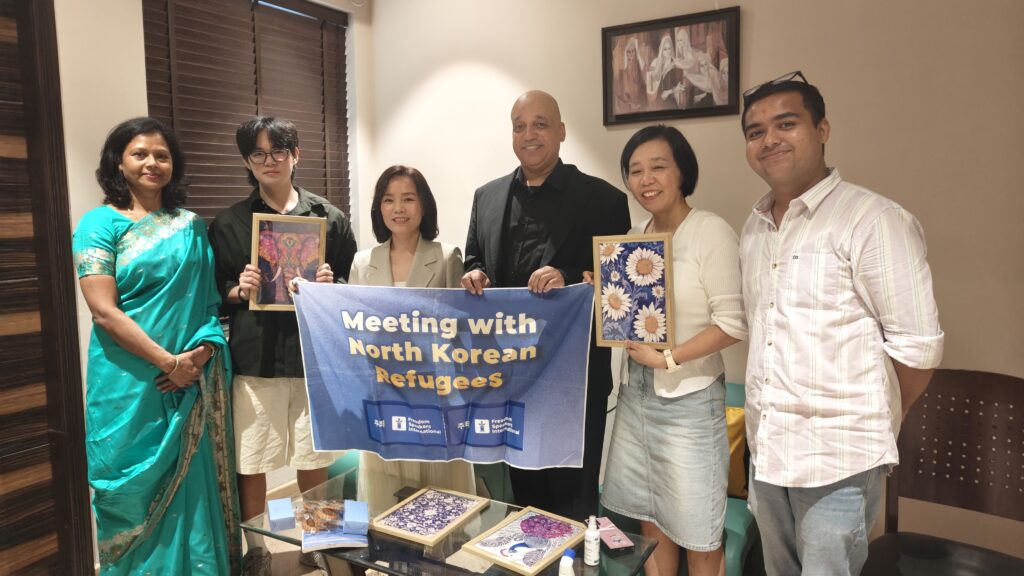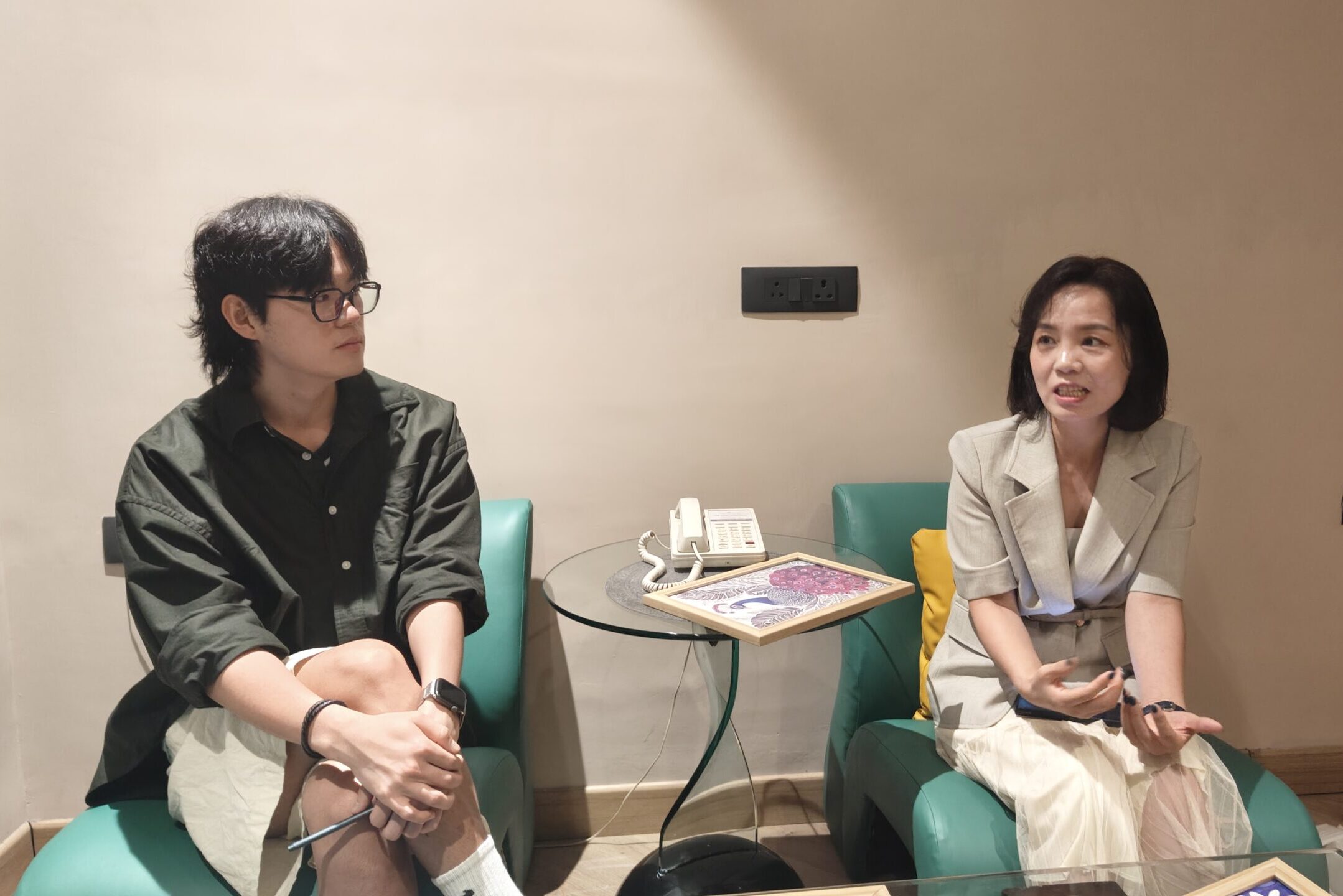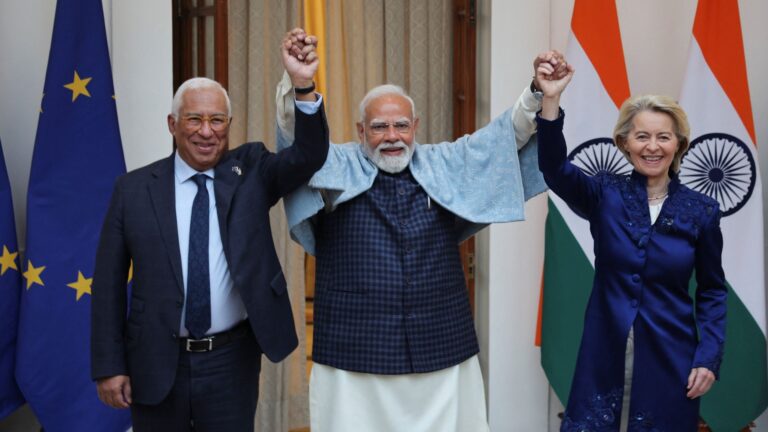
When she was fifteen, Myeonghee Kim found herself standing in crowded markets of North Korea, selling homemade candies and bread. She had once been a student, full of curiosity, but starvation forced her to abandon school. “Even then, it was not enough to survive,” she said quietly during a recent conversation in New Delhi. Her parents had already died of hunger, and her siblings remained in the country. Her brother was conscripted into the military at the age of seventeen for the mandatory ten years of service that leaves young men with little choice but obedience.
Childhood, for Myeonghee, was marked not by games or laughter but by a constant struggle to find food. She would buy goods from larger markets and resell them in smaller ones, always on the brink of survival. The fear of hunger and the absence of electricity were ordinary realities. “It was a hard time as a child in North Korea,” she said. Only years later, after she arrived in South Korea at the age of twenty-seven, did she discover what she had been denied. There were facilities she had never seen before, opportunities she had never imagined. She could finally learn to use a computer and study English. The result of that determination is remarkable. Today, she holds both a master’s and a PhD in social welfare and has recently become an assistant professor at a graduate university in South Korea.
Her story resonates with that of Leo Choi, another refugee who joined Freedom Speakers International in 2023 as a public speaker. Leo was an only child. At nine years old, after finishing his classes, he would walk the streets to collect branches for firewood. His classmates might have been playing, but for him, there was no memory of a carefree childhood. “I don’t have any memory of playing with my friends,” he said. Even education, which was supposed to be free, was compromised. Teachers demanded bribes. Without money, Leo brought scraps of paper for them to sell. Survival weighed heavily than learning.
Leo left North Korea at the age of ten. The decision was not born of understanding or planning but out of necessity. In an interview with The World Times, Leo said, “I never knew I was not going to come back,” he recalled, remembering his father’s tears as they parted. He has not seen his father since. For a child, leaving behind the only world he knew was overwhelming, yet that departure laid the foundation for a future defined by resilience.
Both Myeonghee and Leo are now voices of strength, yet the transformation from silence to speech was not easy. It required a platform. That platform came through Freedom Speakers International (FSI), an organisation co-founded by South Korean researcher Eunkoo Lee and American education activist Casey Lartigue.
For Casey Lartigue, the idea of empowering others with their voice began long before his arrival in Seoul. At the age of twelve, he read the three autobiographies of Frederick Douglass, the former slave who became one of America’s most powerful abolitionist voices. The books left an indelible impression. Years later, as a visiting fellow with the Centre for Free Enterprise in South Korea, working on issues of individual freedom, he encountered North Korean defectors. After volunteering at a school for North Korean refugee adolescents and becoming an activist helping to send air balloons and CDs to North Korea, he asked the first North Korean refugee he had met what their greatest needs were. The answer was striking: first, to learn English, and second, to have a platform where their voices could be heard. This was the seed from which FSI grew.
Together with Eunkoo Lee, who had been working as a researcher at NGOs and a government agency, Lartigue suggested to Lee an initiative that could help adults as well. The two co-founded FSI with the vision of turning silence into speech, despair into empowerment. Today, FSI is known for its English education programs, its public speaking opportunities, and its regular speech competitions that allow refugees to tell their own stories.
Lee emphasised that authenticity is central to their work. “We make sure that if North Korean refugees want to be authors, we let them write their own stories and we do not alter them. It is their story, their voice,” she said. FSI organises speech competitions twice a year, creating safe and supportive spaces for refugees to speak about the lives they left behind and the futures they now imagine.
For many, speaking out carries risks. The North Korean regime has long sought to control the narrative of defectors. Lartigue described moments when threats forced refugees to withdraw from public life. One speaker preparing to deliver a talk in Hawaii was warned by her family in North Korea that they would be punished if she continued. Another who once appeared on television gave up her public profile and deleted her online presence. Even Yeonmi Park, now one of the most internationally recognised voices among defectors, was informed by South Korean police that she had become the number one target of the regime. Lartigue asked if she wanted to continue their podcast, The Casey Lartigue Show featuring Yeonmi Park, in light of the threats. Her answer was resolute: they should do more, not less, to show the world that intimidation could not silence the voices of refugees.
The greatest danger often falls not on the refugees themselves but on their families left behind. Contact with loved ones in North Korea is fleeting and fraught with risk. Refugees living in North Korea sometimes use Chinese cell phones smuggled across the border. A contact in North Korea will carry the device across the border so that family members can come near enough to speak. The conversations last no more than a few minutes, as state surveillance is constant. “We talk only thirty seconds or one minute,” Myeonghee explained. These brief exchanges, though precious, carry the constant fear that one word too many could lead to punishment for those on the other side.

Despite these challenges, both Leo and Myeonghee have turned their hardships into motivation for the future. For Leo, the turning point came when he delivered his first public speech with FSI. It was then that he decided to become a diplomat. “A lot of North Korean refugees living in South Korea are scared to speak up. That is why I want to be a voice for them,” he said. Currently studying human rights and economics, he plans to pursue international relations in the United Kingdom beginning in 2026.
Myeonghee, now an academic and the Grand Prize winner of FSI’s 19th English Speech at Harvard University, sees her ultimate goal not only in personal success but in collective change. “My last goal in life is that North Korea opens its doors to everyone and unites. I want to go there and open a foundation to help North Korean people,” she said. Her vision is grounded in the belief that social welfare and education can rebuild a nation that has long been closed off from the world.
The hope for reunification runs deep. When asked if they believed North and South Korea could one day be united, both answered without hesitation. “Yes, of course,” they said. For them, reunification is not just a political aspiration but a personal dream of returning home, of reconnecting with families, and of transforming the pain of separation into healing.
FSI itself has grown with support from both the South Korean government and private donors. Online fundraising and community networks have sustained their mission, allowing more refugees to access free English lessons, mentorship, and platforms to share their stories. For Lee and Lartigue, the work is not about speaking for refugees but about amplifying their own voices.
The stories of Myeonghee Kim and Leo Choi show the power of transformation. Their childhoods were marked by hunger, fear, and silence. Yet through education, courage, and platforms like FSI, they now speak for themselves and for those who remain voiceless. From the marketplaces of North Korea to university classrooms and international stages, their journeys are a testament to resilience.
In the end, the strength of FSI lies not in the programs it runs but in the people it empowers. Every refugee who takes the microphone, every student who writes their story, every individual who finds the courage to speak represents a triumph over silence. For Myeonghee and Leo, and for countless others, the journey from silence to strength continues, carrying with it the hope that one day, all voices will be free to speak without fear.



